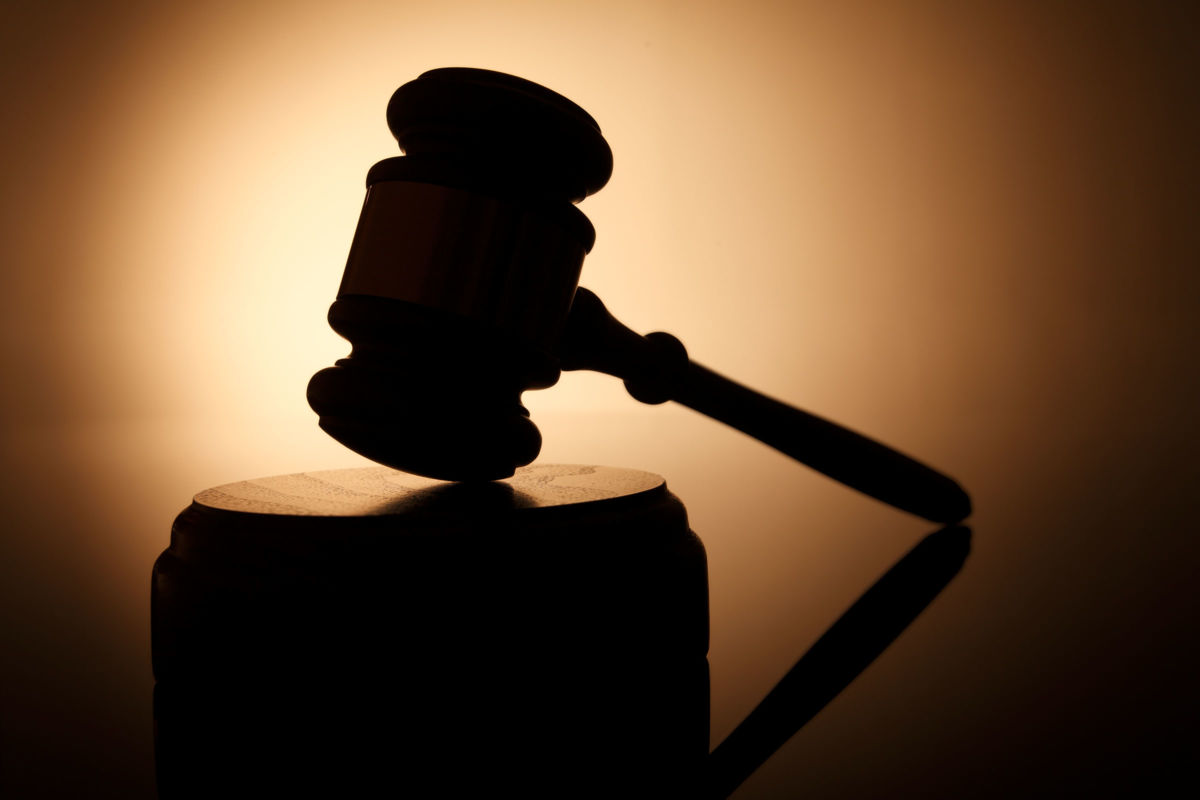Well, as most of you should know, President Biden is now presented with the occasion to make such an appointment with the recent announcement of Justice Stephen Breyer, one of the three remaining liberal leaning Justices on the High Court, that he would step down at the end of the current term.
Justice Breyer has served on the bench for 27 years. At 83, it also makes him the oldest member on the bench too. Appointments are made by the president, and while the nominees are "suppose" to be non-partisan, that doesn't mean they don't pick sides.
In fact, given that the appointments must be approved by Congress, there's been countless fights over the ideological leanings of nominees. The goal is to select someone who leans ideologically the same as you or your party, and to "stack" the court with as many like minded individuals as possible. That, in turns, helps to ensure that various legislative challenges go your party's way for decades to come. Thus, we don't end up with a truly non-partisan court which decides solely on the facts of case, but on their ideological bent.
It also means that, despite the pedestal we place the justices on, they are far from infallible. First, it's important to understand that the court makes two types of decisions. The first is adjudicative, which deals with procedures and precedent. The second is legislative. These deal with "real world" issues.
A former Justice, Harry Blackmun, admitted in 1984 that there were limitations to the court's opinions, especially when it came to real world facts. He went on to say that when it came to real world issues, the court wasn't always "100% correct", which is an understatement. What kind of mistakes are we talking about?
One of the most infamous is the 1857 Dred Scott v. Sandford decision in which the court held that blacks could not be considered American citizens, which undid the "Great Compromise" and all but guaranteed there would be no peaceful resolution to the issue of slavery.Then there was the Civil Rights Cases of 1883 which shot down a previous decision of 1875 over protecting the civil rights of recently freed black slaves and prohibiting racial discrimination. It also ruled that the enforcement provisions of the 13th and 14th amendments did not allow Congress to prevent non-governmental discrimination.
How about Buck v. Bell in 1927? It upheld that those with mental disabilities could be involuntarily sterilized for the "protection and health of the state". Thank you Justice Oliver Wendell Holmes for that bit of wisdom.
How about something a little more recent? Let's go with Korematus v. United States from 1944. Here the nine justices upheld the internment of Japanese Americans and U.S. citizens of Japanese ancestry. They ruled that the need to prevent espionage (with or without reason to suspect) outweighed the individual rights of U.S. citizens.
In 2000, we had the Bush v. Gore decision which affected a presidential election. In what was clearly a partisan decision, five of the Republican justices decided that George W Bush had won the presidential election, while the four Democratic appointed justices said the Al Gore had won. Of course, both sides were wrong as the decision was not up to the High Court, but, according to the Constitution, was to be decided by Congress.
There is Kelo v. City of New London in 2005 by which the High Court ceded to the government of New London (Connecticut) the right to step in and "condemn" someone's private property for the sake of taking it and giving it to someone else (in this case, to a private developer for the alleged purposed of a "comprehensive redevelopment plan", ie: low income housing or shopping mall. Anyone for a game of Eminent Domain?
Remember the Exxon Valdez accident in 1989 when a Exxon ship carrying tons of raw crude oil ran aground and broke up causing a near total environmental catastrophe? It affected hundreds thousands of wildlife, including 2,800 sea otters, 300 harbor seals, 247 bald eagles, 22 Orca whales, approximately 250,000 seabirds and untold numbers of fish and other marine life, not to mention 1,300 miles of coastline.Well, in 2008, the matter went to the Supreme Court (Exxon Shipping Co v. Baker) after years of lower court litigation. Exxon had previously been found guilty and fined $5 billion dollars, the court decided that Exxon could not be fined punitive damages, and was subject to solely to compensatory damages. In English, the fine was reduced from $5 billion to $500 million, but that's not the end of it.
Following the court's illogical decision, Exxon's stock jumped in value, making the company $23 billion dollars over two day! In addition, the company's court order cleanup operation (and PR commercials patting itself on the back) were all tax deductible; the company didn't pay a penny in taxes. Lastly, Justice Samuel Alito, had to recuse himself from the case because (ready for this?), he owned stock in Exxon.
The last case we'll mention is perhaps the most damning in the long run since it effectively destroyed the democratic element of America's Republic, transitioning the country from a Republic to a Corporatocracy. The case is the 2010 Citizens United v. FEC decision. This misruling claimed that corporations were "people" and not just entitled to the same rights as flesh and blood people, but when it came to politics and money, corporations had more.
The decision equated "free speech" with money, and implied that those with more money had greater "free speech". It also allowed corporations to come out of the shadows and play kingmaker out in the open. They could give what they wanted to whom they wanted. Meanwhile, us mortals were still capped in our donations. It, in effect, removed the ordinary voter from the political process.
There is one more law I want to briefly touch on before moving on to Biden's potential nominees, and that's the Civil Rights Act of 1964, which is but one of several similar laws. That law, which was perhaps one of the most powerful ever passed, did, among other things, prohibit discrimination on the basis of race, religion, age, gender, or national origin. It's been modified to include sexual orientation or disability. Keep that in mind as we move forward.It's being reported that the Biden Administration is looking at around eleven individuals to fill Justice Breyer's seat. All eleven are black females. They all have differing backgrounds, some with little experience on a federal bench, while others have served for several years.
One, NAACP Legal Defense Educational Fund President, Sherrilyn Ifill, has no judicial experience at all. Another, J. Michelle Childs, a U.S. District Court Judge, is one of a very few who didn't go to an Ivy League school, along with Delaware Supreme Court Justice Tamika Montgomery-Reeves.
Leondra Kruger, who is a California Supreme Court Justice, is a odds on favorite, and at 45, would be one of the youngest to sit on the Supreme Court. She is considered a "moderate". She has been an acting deputy solicitor general and a deputy assistant attorney general. However, she has no federal judicial experience.
7th Circuit Court of Appeals Judge, Candace Rae Jackson-Akiwumi, has done a good job, but she's held the position for less than a year. L. Song Richardson is the president of Colorado College and past dean of UC Irvine Law School. She is not just black but also part Asian, but again, lack federal judicial experience. So, who is the top pick?
Right now, Ketanji Brown Jackson is the top choice. She is currently serves as Washington DC Circuit Court Judge. She has undergraduate and law degrees from Harvard. She clerked for Justice Breyer. She's a former public defender. Even former GOP Speaker of the House, Paul Ryan likes her. But then again, he's related to her by marriage.There are others in the mix, including a few outrageous outliers like Michelle Obama and Vice President Kamala Harris. Some have even suggested Hillary Clinton! That make history (for all the wrong reasons), but alas, Hillary doesn't qualify for obvious reasons.
While Biden said he would nominate a "woman of color" to the Supreme Court if he got a chance, none of those on the short list are Hispanic, Asian, or Native American. While Hispanics have a representative (Sonia Sotomayor), and there have been several females justices (with three currently serving), as well as former Chief Justice Sandra Day O'Connor there has never been a Asian, Native American of either gender to serve on the Supreme Court.
While Biden is committed to nominating a black female, there has been a black justice in Clarence Thomas. So, why not a Native American or Asian? Lauren King, a federal judge in Seattle would be a great choice. King, a Muscogee Tribal member, is only the sixth Native American to ever be appointed to a federal bench in its 232 year history. She has served as a pro tem appellate judge for the Northwest Intertribal Court System since 2013.
There's also Jacqueline Arroyo who has served on the Superior Court of Santa Clara County since 2008, and she is of Asian descent. Pamela Ki Mai Chen has on the U.S. District Court for the Eastern District of New York, and has Asian ancestry. She previously served in the Civil Rights Division of the Justice Department. As an aside, she is also the only openly gay person to serve on a federal bench. Cathy Bassoon has Hispanic and East Indian roots, has served on the U.S. District Court for the Western District of Pennsylvania since 2011.
In short, there are other, more obviously higher qualified "women of color" than exclusively black female candidates who've never had any representation of any sort on the Supreme Court. Secondly, the Civil Rights Act of 1964 (and similar legislation) clearly prohibits discrimination of the basis of age, gender, religion, orientation, handicap, or race. It's about hiring the best qualified person for the job. Period.Biden's promise was an obvious violation, if not in fact, then in spirit of the various federal anti-discriminatory laws. He could have privately thought whatever he wanted, but by opening his mouth to pander votes, he potentially violated federal law by disqualifying better qualified males as well as Native Americans and Asians should they be excluded from serious consideration.
The Supreme Court has had a lot of recent history of screwing up. Let's not perpetuate the screw ups by automatically eliminating the best qualified candidates from this or any other positions in or out of government.
If you want to know more, please take a look at the links below. If you enjoyed the article, please consider passing along to others and don't forget to subscribe. It's free! Lastly please be sure to "like" us on Facebook or whatever platform you use to read A/O. It helps with the algorithms and keeps our articles in circulation.
13 Worst Supreme Court Decisions Of All Time
The 11 likeliest people to get Biden's Supreme Court nomination
Ideological Scores of Supreme Court justices
Protections Against Discrimination and Other ProhibitedPractices
U.S. Senate confirms only 6th Native American ever tofederal bench
The Supreme Court of the United States: Current Members






No comments:
Post a Comment